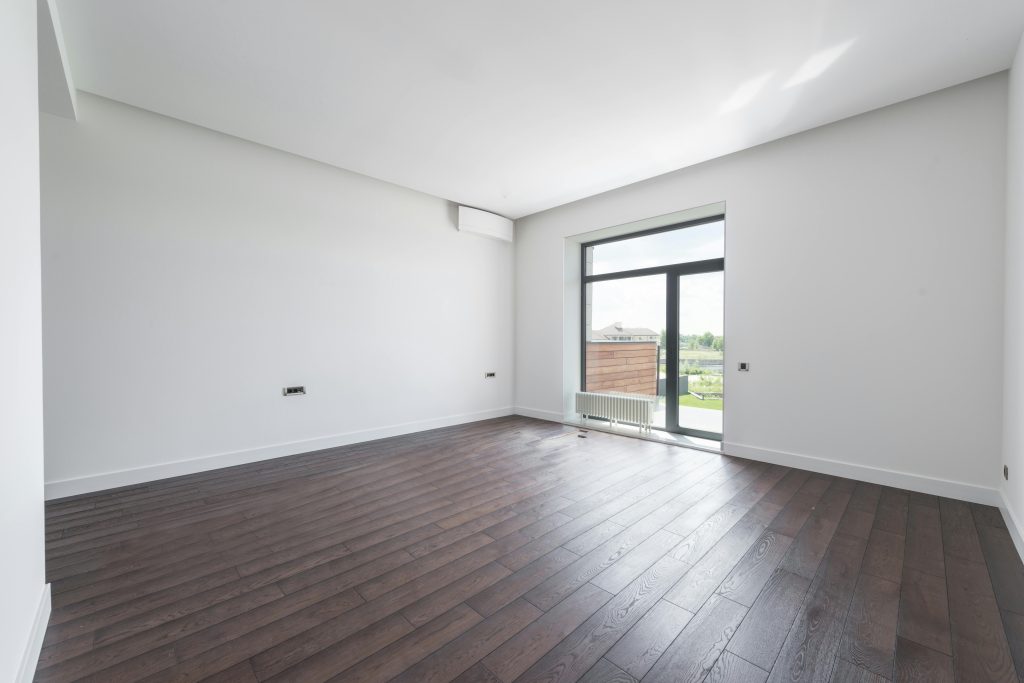Selling a tenanted property? It’s absolutely doable, but you need to play by the rules.
In the UK, landlords have two main paths when selling a property with tenants. Get it right, and you’ll keep the process smooth, legal, and stress-free. Here’s how.
Can You Sell a Tenanted Property?
You can sell a property with tenants living in it, but the approach you take matters. Let’s break down your options.
Sell With Tenants in Situ
This means selling the property with your tenants still there. The tenancy agreement continues, and the buyer becomes the new landlord. Here’s why it’s appealing:
- Instant rental income for the buyer from day one.
- No need to serve notice, avoiding void periods or legal hassles.
- Attracts investors looking for ready-made rental income.
But there are downsides:
- Smaller buyer pool: You’re mainly targeting buy-to-let investors, not owner-occupiers.
- Lower sale price: Properties with tenancies generally fetch less because of the small buyer pool. Low demand = lower price. If the property’s current rental yield is relatively low, you might even struggle to attract landlord buyers since they care about profit margins.
- Tenant issues transfer: Any arrears or disputes become the buyer’s problem.
Selling to another landlord can be straightforward. But if you’re aiming for a broader market appeal, you’ll need vacant possession, which means giving proper notice.
Notice for Evicting Tenants
Under the Renters’ Rights Act 2025 and related reforms (now in force from May 2026), the legal landscape for ending a tenancy to sell a property has changed significantly in England. Section 21 “no-fault” evictions have been abolished for assured tenancies, meaning landlords cannot evict tenants simply to sell the property without a valid reason. Instead, landlords must rely on specific grounds for possession (typically via a Section 8 notice) under the Housing Act 1988, and give the correct notice period associated with that ground. For disposals where the landlord genuinely intends to sell with vacant possession, courts will usually expect evidence that the property has been marketed at a fair price for a reasonable period and that the notice served provides a minimum of four months’ notice before seeking possession.
These changes apply to private rented tenancies in England — different rules apply in Wales, Scotland and Northern Ireland.
Key Requirements Before Using Ground 1A
- Intent to Sell: The landlord must genuinely intend to sell the property with vacant possession. The court will require evidence of this.
- Marketing Period: As per the Lords amendment in Clause 15 (inserting subsection (1)(viii)), the property must have been “demonstrably available for purchase on the open market at a fair price for not less than six months” without receiving any “suitable offers.”
- “Fair price” means a reasonable market value (e.g., based on comparable sales or a professional valuation).
- “Suitable offers” likely means offers at or above the asking price that the landlord unreasonably refused.
- The tenant or local authority can challenge this in court, and under subsection (1A), the court has the power to require evidence (e.g., estate agent listings, marketing reports, offer logs) and decide if “genuine attempts” were made to sell. If the court finds the marketing was not genuine (e.g., overpriced to deter buyers), possession will be denied.
- Waiting Periods:
- For new tenancies starting after the commencement date (assumed to be in 2025 based on the bill’s timeline), you cannot use Ground 1A within the first 12 months of the tenancy.
- Notice period: At least 4 months’ notice must be given (extended from the previous 2 months under the old rules).
- Exemptions and Restrictions:
- Shared Ownership Leaseholders: Under Clause 19 (inserting new Section 16GA), Ground 1A cannot be used if the landlord is a shared ownership leaseholder (as defined in the Landlord and Tenant Act 1985).
- Suitable Alternative Accommodation: As per Clause 4 (amendment 4), the court cannot grant possession under Ground 1A if the property was previously deemed “suitable alternative accommodation” under the Housing Act 1985 (e.g., in homelessness cases).
- Transitional rules (Schedule 6): For existing tenancies (pre-2025), the old Section 21 may still apply if a valid notice was served before commencement, but new evictions must use Ground 1A.
- Not applicable to agricultural tenancies or certain student lets
- Other Limits: You cannot use this ground if you’ve recently bought the property (anti-flipping rules may apply, though not explicitly amended here). Also, repeated use of selling grounds by a landlord could lead to penalties if seen as evasive.
Step-by-Step Protocol for Landlords
- Prepare Evidence of Intent to Sell:
- List the property for sale on the open market (e.g., via estate agents, online portals like Rightmove).
- Market it actively for at least 6 months at a fair price.
- Document everything: Listings, viewings, offers received/rejected, valuations, and reasons for no sale. This will be crucial in court.
- Serve a Section 8 Notice:
- Use the prescribed Section 8 notice form (updated under the Act—check GOV.UK for the latest version).
- Cite Ground 1A explicitly.
- Provide at least 4 months’ notice (or longer if the tenancy agreement specifies).
- Include evidence of the 6-month marketing period and lack of offers.
- Serve it correctly (e.g., in person, by post, or electronically if agreed). Proof of service is essential.
- Wait for the Notice Period to Expire:
- The tenant may leave voluntarily. If not, you cannot evict without a court order.
- Apply to Court for Possession:
- If the tenant doesn’t vacate, file a claim for possession in the County Court (use Form N5 and N119, or the online Possession Claims Online service).
- Pay the court fee (currently around £355, but check for updates).
- Submit evidence: Marketing history, no suitable offers, and proof the ground is met.
- The court will schedule a hearing (accelerated if uncontested). The tenant can defend (e.g., by arguing the sale isn’t genuine).
- If granted, the court issues a possession order (usually effective after 14 days, but can be suspended if hardship is shown).
- Enforce the Order (If Needed):
- If the tenant still doesn’t leave, apply for a warrant of possession (extra fee, around £130).
- County Court bailiffs will evict (this can take weeks/months).
- High Court enforcement is possible for faster action but it costs more!
- Complete the Sale:
- Once vacant, proceed with the sale.
- Note: If you don’t sell within a reasonable time after eviction, this could be seen as misuse of the ground, potentially leading to fines or bans under the Act’s database of rogue landlords (Clause 65-66).
Potential Costs and Risks
- Costs: Legal fees (£500-£2,000+), court fees, lost rent during notice/marketing.
- Penalties for Misuse: If the court finds the eviction wasn’t genuine (e.g., you relist for rent after), you could face fines up to £30,000, banning orders, or civil penalties. The standard of proof for some offences is now “beyond reasonable doubt” (amendments in Clauses 42 and 59).
- Tenant Rights: Tenants can claim compensation if the eviction is wrongful. Also, deposits must be protected, and no retaliatory evictions are allowed.
Alternatives to Eviction
- Sell with Tenant in Situ: Many investors buy tenanted properties. This avoids eviction but may fetch a lower price.
- Negotiate: Offer incentives (e.g., cash for keys) for the tenant to leave voluntarily.
- Other Grounds: If applicable, use alternatives like Ground 1 (you want to live there) or arrears/anti-social behaviour grounds, but these each have their own separate set of rules.
Selling With Tenants in Situ
Selling with tenants in place means the buyer inherits the tenancy agreement. This can be a win-win for landlords and investors.
Benefits of Selling With Tenants in Situ
- Immediate income: The buyer starts earning rent from day one.
- No eviction hassle: Skip notice periods and court proceedings.
- Attracts investors: Ideal for those seeking a turnkey rental property.
This works best if your tenants are reliable, the rent is competitive, and the property is in a high-demand rental area.
Risks and Downsides
- Limited buyers: You’re mostly appealing to landlords, not homeowners.
- Lower sale price: Tenanted properties may sell for less than vacant ones.
- Inherited issues: Any arrears or disputes transfer to the new landlord.
Be upfront with buyers about the tenancy details to avoid surprises.
Legal Obligations
You remain the landlord until the sale completes. This means:
- Honouring the tenancy agreement.
- Giving 24 hours’ written notice for viewings, at reasonable times.
- Continuing repairs and maintenance.
- Protecting the tenancy deposit until it’s transferred to the new landlord.
Tip: Offer tenants a small rent reduction during the sale to encourage cooperation with viewings. It’s not mandatory, but it keeps things amicable.
Tenants’ Rights When You’re Selling
Your tenants have robust legal protections, whether you’re selling with them in situ or seeking vacant possession.
Tenants Don’t Have to Leave
A common myth is that selling a property means tenants must vacate. Not true. Tenants can stay until:
- A valid Section 8 notice is served, and a court grants possession.
- They agree to a mutual surrender.
Harassing tenants to leave – through repeated calls or unannounced visits – can lead to legal claims for harassment or unlawful eviction.
Viewings Require Consent
Selling a property with tenants in situ does not automatically give landlords the right to demand unlimited access for viewings. Unless your tenancy agreement specifically allows access for viewings, you should give at least 24 hours’ written notice of any visit and arrange times that are reasonable for the tenant. Tenants are entitled to refuse access beyond reasonable requests. Harassment or repeated unannounced visits could give rise to claims under the Protection from Eviction Act 1977.
What Happens to the Deposit?
For sales with tenants in situ, the tenancy deposit must be transferred to the new landlord with all required information. There is a facility to transfer the deposit via whatever government-approved scheme like the Deposit Protection Service that you used to hold the deposit at the start of the tenancy. Failure to transfer correctly can lead to problems.
How Much Notice Should You Give Tenants?
If you want vacant possession to sell your property before the sale, you can no longer rely on a Section 21 notice as you could in older law. Instead, landlords need to use a valid Section 8 possession notice supported by a specific ground under the Housing Act 1988 if they want the tenant to leave so the property can be sold empty. The most commonly used ground for this purpose is where the landlord is seeking possession because they intend to sell the property with vacant possession. Current legal practice is that landlords should provide at least 4 months’ written notice, and evidence of genuine intent to sell (such as a reasonable marketing period) may be required for a court to grant a possession order. If the tenant simply stays on, eviction cannot occur without a court order following the expiry of the valid notice period.
The eviction route
Under the Renters’ Rights Act, to evict tenants before selling a property using Ground 1A (Schedule 2, Housing Act 1988), landlords must give at least 4 months’ notice via a Section 8 notice. This applies to assured tenancies in England, provided the property has been marketed for sale at a fair price for at least 6 months with no suitable offers (per Clause 15).
In other words, you’ll need to try sell the property with tenants in situ first, and only if this fails (after 6-months of trying to sell) can you then try and evict the tenant.
Selling With Tenants in Situ
If you sell the property with tenants in place, you do not need to give eviction notice for the purpose of selling. However, you do still need to respect tenant rights: the tenancy continues under its existing terms, and you must give appropriate notice for viewings, transfer the deposit correctly, and inform tenants of the change of landlord contact details.
Alternatives If You Need a Quick Sale
Sometimes, the standard sales process is too slow. If you’re facing repossession, a buyer pulling out, or tenancy complications, consider these options.
Sell to a Cash Buyer
Cash buyers offer speed and simplicity – no mortgage delays, no chains. Look for reputable firms regulated by bodies like the National Association of Property Buyers.
Why it works:
- Fast exchange, often within days.
- Can buy with tenants in situ.
- Handles complex tenancy issues.
At Property Rescue, we specialise in buying tenanted or vacant properties across England and Wales, making the process hassle-free. Here’s why landlords choose us:
- Direct purchase: No estate agents or hidden fees.
- Tenant-friendly: We buy with tenants in situ or manage tenancy transitions.
- Speed: Get your property sale completed in just a couple of weeks from start to finish
- Legal support: We cover your legal fees.
At Property Rescue, we make it easy. No agents, no delays, no awkward tenant conversations – just a fair cash offer and a sale on your terms.
Get in touch today at Property Rescue.









